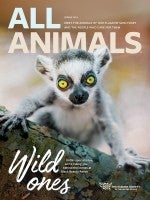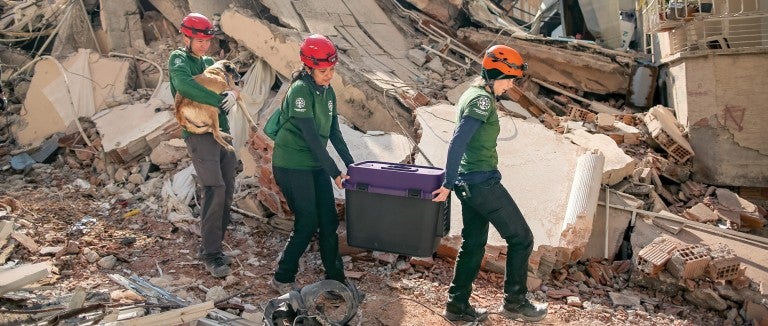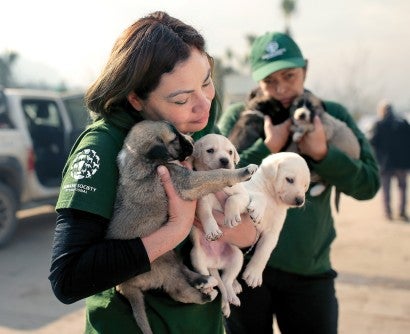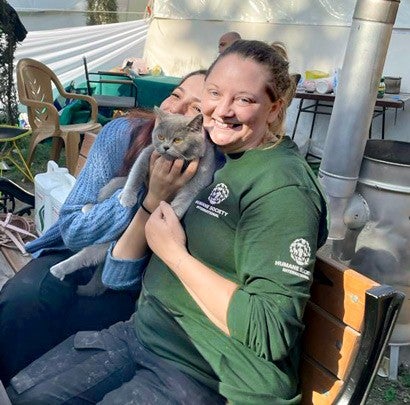The disaster responders could tell when they were getting close to their destination. Driving south to Antakya—a city revered for its cultural history and home to 400,000 people—they saw a few damaged buildings. But as they approached the city, almost every building was crumbling. Once inside Antakya, they had to weave around piles of debris in the road. They saw dogs and cats wandering the streets and countless tents housing residents and emergency responders.
Two weeks earlier, on Feb. 6, a 7.8 magnitude earthquake struck southern Türkiye and northern Syria. Just hours later, a 7.5 magnitude earthquake hit. Over 57,000 people were killed and millions more were impacted. In Antakya, residents were left with no electricity or safe drinking water as they endured the trauma of aftershocks.
As news of the disaster broke, Humane Society International provided emergency financial assistance to local groups Working Animals Rescue Foundation and Homeless Animals Protection Society, enabling them to dispatch veterinarians and transport supplies to affected areas. HSI disaster responders also deployed to Türkiye, where they searched for missing pets and injured animals and helped run one of the three clinics set up by local veterinarians—many of whom had faced unimaginable losses.
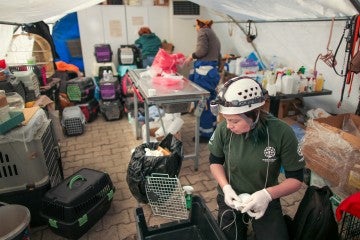
Veterinarian Savaş Akdeniz was trapped in his home with his girlfriend and two friends for 33 hours before being rescued. One of his friends died. After traveling to a nearby city to bury her, he and a few loved ones returned to help, setting up the clinics alongside others in the veterinary community. During the first few days, “conditions were really rough,” Akdeniz says.
A veterinarian and veterinary technician worked nonstop at the first clinic and were exhausted when HSI/Mexico campaign director and veterinarian Claudia Edwards arrived to help. Additional responders from HSI also eased the workload, caring for animals rescued by our team or brought in by residents. Cuts, infected wounds, dehydration and starvation were among the most common issues.
Want more content like this?
This was written and produced by the team behind All Animals, our award-winning magazine. Each issue is packed with inspiring stories about how we are changing the world for animals together.
Learn MoreSubscribe